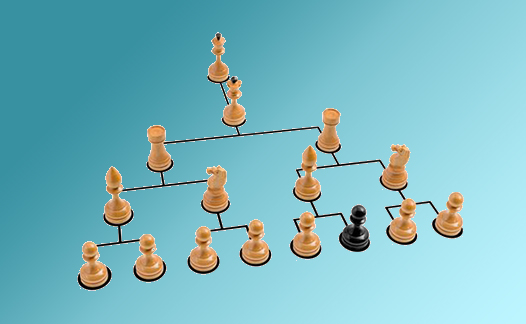3 secrets to transform your sales from good to great
There are questions everyone loves to ask
- What puts the ‘slurp’ into a chicken soup?
- What would be the best soccer team ever?
- What is the best time to invest?
The challenge with world’s favorite questions is that they have no definitive answers. And everybody claims to have one. Yet every now and then, someone undertakes brave new research that attempts to come up with serious answers. In Harvard Business Review’s (HBR) July 08, 2015 issue Ryan Fuller shares research findings on one such elusive question – What makes great salespeople?
Three success behaviors, according to the research, were strongly associated with top performers:
Mathew Bellows refers to those two days that precede a pipeline presentation when all hell seems to break loose. Days and weeks have been spent in frenetic activity when you collate individual and team projections, check on current deals in progress, new deals picked up, likely closure dates and closure probability percentages. Your people are diligently managed and compensated for consistency and predictability. You are on top on all major deals. Sales training and a market leading Customer Relationship Management (CRM) are also in place. There was no shortage of weekly updates. Yet for those 48 hours, none of this seems to help and you end up giving your bosses what can at best be an informed guess
When did forecasting sales – a number widely regarded as most measurable, one that shows up in all reports every week, month, quarter and year - become such a daunting problem?
Two challenges of sales forecasting
Bellows traces the roots of the sales forecasting problem to two basic challenges:
- Customer engagement
- Internal networks
- Energy
The research findings were agnostic to region, territory or sales role. This suggests that they are foundational ingredients for sales success
Here is a summary of the framework of behaviours that seem to go into making great salespeople
1. More time with Customers but with sharper focus
Research found that top sales performers spend up to 33 percent more time with customers per week. But it meant much more than simply investing more time on a large number of Customers. Degree of focus mattered too. “For example,” the article observes “in one large B2B technology company, top performers spent 18 percent more time with Customers per week. Yet they interacted with 40 percent fewer accounts over the course of a quarter allowing them to spend more time with each of those accounts relative to lower performers”. The key insights were:
- Depth is more important than breadth in managing accounts. If you want to be a top performer, you must work towards building deeper relationships with fewer Customers
- Choice of depth or breadth should be dictated by the sales process - The caveat here is that this principle may not be applicable across all businesses. Much would depend on the type of sales process. If the sales process is consultative, then you will benefit from a depth-focused approach. On the other hand, if selling is intrinsically transactional, breadth of relationships would be a big help
- Focus on time with Customers and quality of account relationships - These were found to be fairly sure indicators of sales outcomes. They are also reliable key performance metrics that sales leaders should track and include in their territory designs to improve team performance
2. Build a bigger internal network but choose with care
Top sales performers had substantially larger networks within their companies, often up to 30 – 40 percent larger, ‘higher centrality’ (defined by research as a measure of influence within the network) and ensure that they get more time with leadership. How does that help?
How a bigger internal network will benefit you
Given the complexity of most organizations, especially larger ones, building a large internal network, can make you more successful as it will mean:
- You get exposed to more ideas from across the business
- Secure easier and quicker access to expertise when needed
- Have more context about whatever is happening within the company
Below are some pointers on building and leveraging a wide internal network:
- Prioritize quality over quantity - Quality of the internal relationships would mean more than the quantity. Marking your presence in lots of meetings with a large number of participants isn’t always helpful
- Frequency and intimacy should measure relationship quality – To establish a meaningful relationship, you should be interacting not only frequently – twice a month at the very least – but also do so in a compact group, ideally five people or lesser. To sum up, you must interact with several people, frequently on specific, separate issues or threads in order to create a large internal network for yourself
- Make time for building a network – Creating an internal network you can rely on takes time and effort. The study discovered that top performers spend anywhere between 10 – 15 hours per week on creating and sustaining a network. If you are a sales leader, you might chafe at your salespeople spending time on this which, you feel, they must be using for sales. The study, however suggests that networking internally is time well invested
- Get more exposure to senior leadership – – Giving yourself more exposure to senior leadership is closely connected to sales success. Management relationships are a critical component of your internal network. Ryan Fuller suggests – “… the top sellers spend relatively more time with other members of senior leadership
- Bond with sales support but more may not be better – While cordial relationships with sales support is good for positive sales outcomes, more relationships or time may not necessarily be better. In fact, more time spent with sales support could just mean the salespeople are selling a wider range or more complex products, forcing salespeople to fall back on sales support
3. No prizes for guessing this, work harder at sales
No surprise that the study by the author’s company found top performers simply putting in more time, every salesperson knows it. “Their weeks are approximately four hours longer, with up to 40 percent more time spent outside of normal working hours compared to their lower-performing counterparts” Ryan Fuller observes. But it is much more than straight and simple hard work. Making every hour count is the key
Mercuri Insights
It has been said for centuries that “A bad workman blames his tools”. Mercuri’s belief in competence driving sales excellence rests on such timeless wisdom.
Some company level strategies to make these insights work
Drawing on the study findings, following are some strategies at the company level, that the author suggests:
- (i) Don’t spread it thin – If you have 15 hours of customer time in a week, allotting say, 3 hours each to 5 accounts is likely to lead to better outcomes than spending 1 hour on 15 different accounts
- (ii) Use onboarding programs to kick-start internal networks – The company should use onboarding and sales induction programs to get the new hires to meet and interact with a large and diverse set of colleagues, supported through collaboration tools, trainings, coaching and other modes of interaction
- (iii) Create consistent access to support resources for salespeople – This will help avoid the need for salespeople to reach out to a different specialist for each new account, which can increase overheads and diminish outcomes
- (iv) Recognize that every product line has a support cost – Whenever you broaden the product range, take into account the cost of building expertise and internal support required by the salesforce
- (v) Right approach will vary by company and can change over time – Choice and implementation of approach should be data driven and not based on gut feel or anecdotal evidence
While admitting that enough data hasn’t yet been accumulated to establish the causality of these success metrics, Ryan Fuller concludes – “That said, rigorously proven causality is not a prerequisite for learning from these insights”
So, the secret to transforming your sales from good to great could be in consistently applying these ideas at work. The HBR article on What Makes Great Salespeople by Ryan Fuller is here
| Keywords | ||
| Mercuri International | Annotation | Sales support |
| Internal network | Quality sales time | Sales Performance Improvement |
| Sales Training | ||
In Essence annotates published articles of value to the Sales Community. It is an effort to bring insights within reach of Sales Leaders in ways that enable quick assimilation and action. Mercuri International acknowledges the authors and the publications for the insights.










We welcome your comments on "Increase Sales using Incremental Commitments"